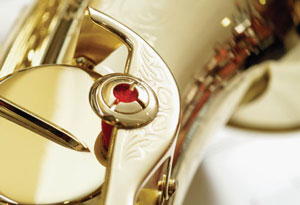7 Powerful Ideas We Can't Stop Thinking About

Photo: Thinkstock
The Power of Music Rising
When Hurricane Katrina surged through New Orleans, it destroyed whole neighborhoods, thousands of lives—and perhaps less obviously, countless musical instruments. The rising floodwaters struck at the city's heart, but music was always its soul, and two people who understood that were U2's lead guitarist, the Edge, and legendary music producer Bob Ezrin. In 2005, along with partner Gibson Guitar, they created Music Rising, a charity with a single goal: to get the bons temps rolling again by replacing all the lost instruments in the region that shaped jazz, funk, gospel, and rock 'n' roll. Last spring they expanded to Nashville, when the country music capital was deluged as well. "Similar to New Orleans, we realized there was a real jeopardy here, that a lot of musicians would lose their livelihood," Edge says.
To identify need and raise funds, Music Rising partners with MusiCares, Guitar Center Music Foundation, and the New Orleans Jazz & Heritage Festival, among others. This fall the group is working with Tulane University to create a course about the musical roots of the Gulf Coast, a region that Edge refers to as a "crucible." In such a place, a trombone or a guitar or a drum set is more than an instrument; it's the key to a heritage. Right after Katrina, Ezrin recalls, "wherever the music was silent, it felt depressing. But where people had gathered to play, there was a feeling of solidarity, of community, and of hope." — Susan Casey
When Hurricane Katrina surged through New Orleans, it destroyed whole neighborhoods, thousands of lives—and perhaps less obviously, countless musical instruments. The rising floodwaters struck at the city's heart, but music was always its soul, and two people who understood that were U2's lead guitarist, the Edge, and legendary music producer Bob Ezrin. In 2005, along with partner Gibson Guitar, they created Music Rising, a charity with a single goal: to get the bons temps rolling again by replacing all the lost instruments in the region that shaped jazz, funk, gospel, and rock 'n' roll. Last spring they expanded to Nashville, when the country music capital was deluged as well. "Similar to New Orleans, we realized there was a real jeopardy here, that a lot of musicians would lose their livelihood," Edge says.
To identify need and raise funds, Music Rising partners with MusiCares, Guitar Center Music Foundation, and the New Orleans Jazz & Heritage Festival, among others. This fall the group is working with Tulane University to create a course about the musical roots of the Gulf Coast, a region that Edge refers to as a "crucible." In such a place, a trombone or a guitar or a drum set is more than an instrument; it's the key to a heritage. Right after Katrina, Ezrin recalls, "wherever the music was silent, it felt depressing. But where people had gathered to play, there was a feeling of solidarity, of community, and of hope." — Susan Casey



